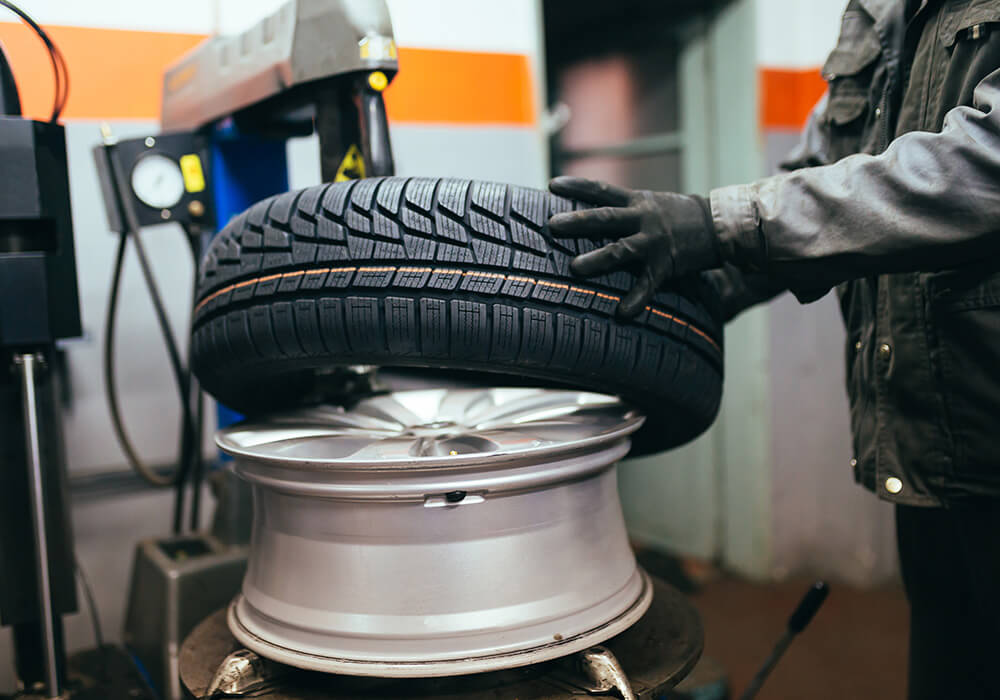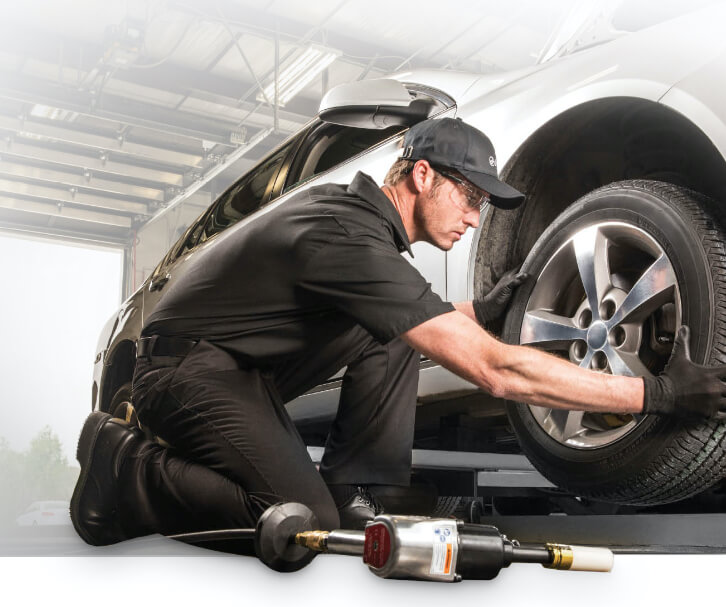Morris Tires: Your Partner for Expert GMC Tires Service
Morris Tires: Your Partner for Expert GMC Tires Service
Blog Article
Tire Service: The Influence of Climate Condition
When it involves ensuring optimum efficiency and safety when driving, recognizing the influence of climate condition on tire solution is critical. From scorching warmth to icy roads, each weather element can dramatically affect tire capability and overall driving experience. By diving right into the effects of differing weather problems on tires, chauffeurs can gain beneficial insights that might improve their automobile's performance and durability. In this conversation, we will explore the intricate partnership between climate conditions and tire solution, dropping light on the importance of weather-specific tire upkeep methods and considerations.
Heat and Tire Efficiency
When subjected to high temperature levels, tires experience modifications in performance that can significantly affect lorry security and handling. The warm created from prolonged driving or heat problems creates the tire rubber to soften, bring about reduced walk life and raised wear. As the rubber becomes softer, the tire's grip when traveling reduces, impacting stopping ranges and total traction. In extreme instances, extreme heat can also trigger tire blowouts, positioning a severe security danger to the vehicle and its occupants.

Cold Weather Effects
Cold weather conditions can have a significant impact on tire performance and security. In cool climate, tires may additionally shed air pressure more swiftly, which can affect dealing with and gas performance.
To minimize the impacts of chilly weather condition on tires, it is critical to frequently check tire stress and inflate them to the supplier's suggested levels. Using winter months or all-season tires made for cool weather condition problems can additionally improve grip and hold on icy or snowy roads. Correct tire upkeep, including routine inspections for wear and damage, becomes even much more vital during cooler months to make certain optimal efficiency and safety and security.
Rainy Conditions Effect
Tires with worn-out footsteps are a lot more susceptible to hydroplaning, where a layer of water develops up in between the tire and the roadway surface area, leading to loss of grip. To fight this, vehicle drivers ought to on a regular basis inspect their tires for adequate tread depth and think about spending in tires particularly developed for damp problems.
In addition, wet weather can also decrease presence, making it testing for vehicle drivers to see the road ahead clearly (GMC Tire Service). In such conditions, it is essential to readjust this page driving speeds accordingly and maintain a secure adhering to distance to permit for unexpected quits. Properly inflated tires can additionally help in maintaining control on wet roads by providing much better handling and grasp
Snow and Tire Security
Snow-covered roadways pose one-of-a-kind difficulties for drivers, highlighting the relevance of proper tire selection and maintenance. When driving in snowy problems, having the ideal tires can make a considerable distinction in safety and performance. Winter click for more info tires are developed with unique rubber compounds and walk patterns to give better grip on snow and ice compared to all-season tires. The much deeper treads and sipes of winter tires aid hold the road much better, decreasing the risk of sliding and sliding.

Additionally, chauffeurs must consider installing tire chains in extreme snowy problems. Tire chains give extra traction by grasping the snow and ice, boosting security and control. It is important to follow maker guidelines when mounting and making use of tire chains to protect against damages to the tires and lorry (GMC Tire Service). By picking the right tires, maintaining correct rising cost of living, and considering additional traction help like tire chains, drivers can boost their safety and security when browsing snow-covered roads.
Weather-Related Tire Upkeep
When their website faced with different weather, appropriate tire maintenance comes to be an essential aspect of car safety and performance. Weather-related tire upkeep includes a series of methods targeted at making certain ideal tire feature and long life in different weather circumstances. One crucial facet of weather-related tire upkeep is tire stress regulation. Rising and fall temperatures can cause tire stress to differ, impacting grip and gas efficiency. Consistently changing and inspecting tire stress according to manufacturer suggestions is vital for secure driving in changing climate problems. In addition, tire step deepness plays a substantial duty in dealing with different climate elements. Tires with adequate walk deepness give much better hold on damp or icy roads, decreasing the danger of hydroplaning or skidding. Inspecting tire walk consistently and changing tires when walk wear gets to a particular depth is essential for maintaining traction and stability in negative climate. By prioritizing weather-related tire maintenance, vehicle drivers can improve security, improve lorry performance, and lengthen the life-span of their tires.
Final Thought
In final thought, climate conditions have a considerable effect on tire efficiency and security. From warmth affecting tire stress and put on to chilly weather condition minimizing traction, it is essential to consider the weather condition when preserving and utilizing tires.
In this conversation, we will certainly check out the complex partnership between climate problems and tire service, dropping light on the importance of weather-specific tire upkeep methods and factors to consider.

Report this page